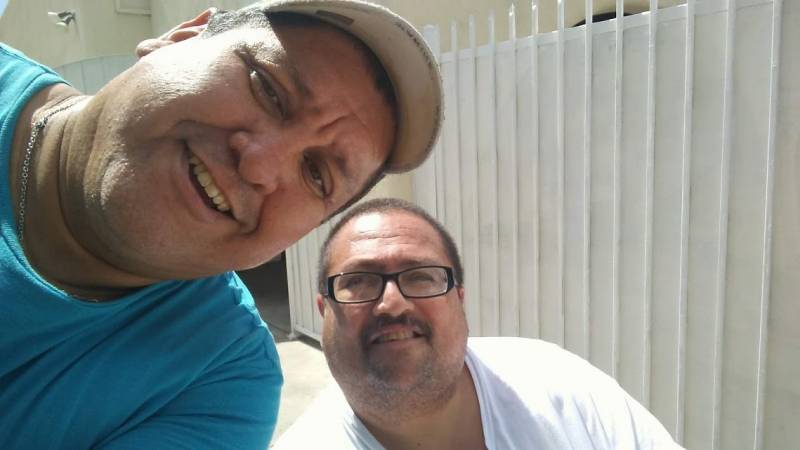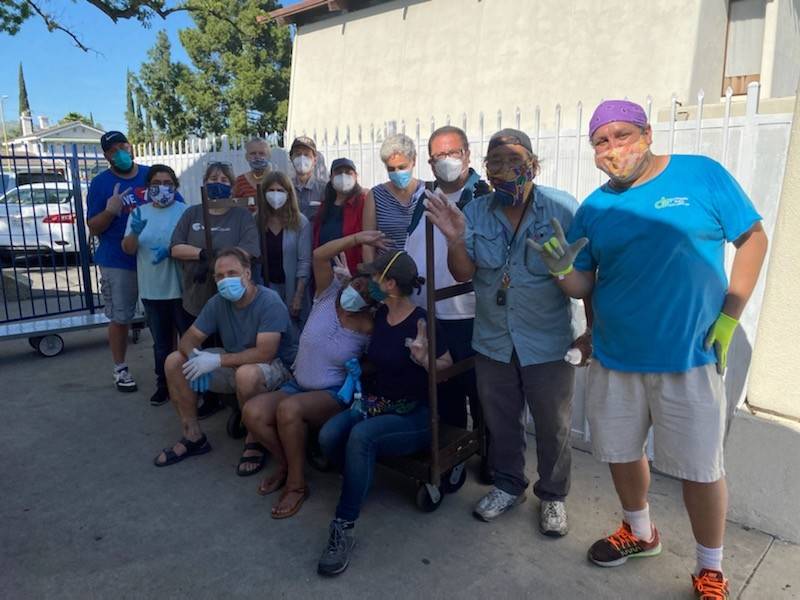For Héctor Ramírez, routine is important. He has rituals that are comforting to him, like taking his service dog on two walks every day.
“I have to say hello to people,” Ramírez said. “And I have like a certain number, like 30 people, I have to say hello. And so when I'm walking around, I do that with my neighbors. So everybody thinks that I'm really sociable, but I'm actually very introverted. I'm actually really shy.”
Ramírez has a round, expressive face and kind eyes. He is autistic and hard of hearing. He’s 45, and he lives with his mom in a rent-controlled mobile home park in Chatsworth, in the San Fernando valley.

Now, because of social distancing, there’s no one to say hi to on his walks.
“So I just had to really make new routines and remember my cultural values of respecting my elders and community. And, you know, just holding on to those things in every way that I can,” Ramírez said.


